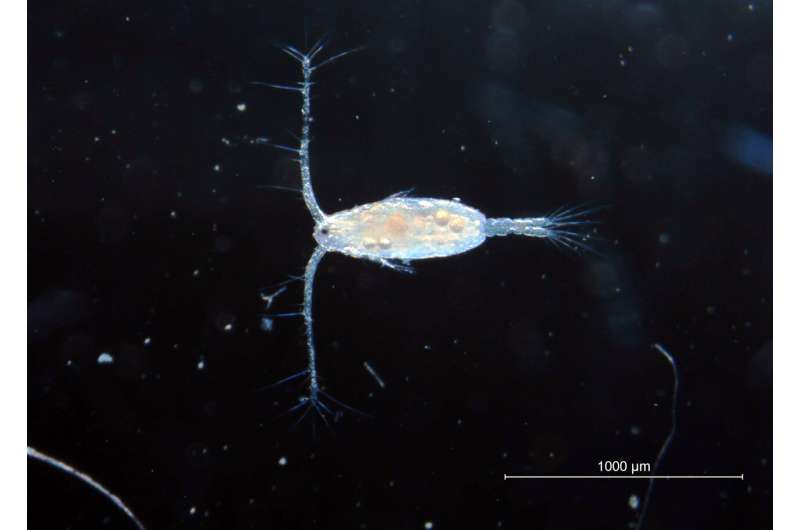Too Many Copepods
If you're an aquarist, you may have heard of copepods - small crustaceans that are becoming popular in the aquarium hobby. While they are beneficial to some extent, too many copepods can be overwhelming and cause several problems. In this blog post, we will dive deep into the topic of too many copepods, discussing the pain points associated with them, their target, and everything in between. So, let's get started!
Pain Points of Too Many Copepods
Having too many copepods in your aquarium can cause several issues. Firstly, they can rapidly reproduce, leading to overpopulation and loss of space for other marine animals. Secondly, copepods are known to consume coral and other sessile invertebrates, leading to a decline in the health of your aquarium's ecosystem. Lastly, if you're breeding fish, too many copepods can become a hassle as they tend to stick to the eggs, leading to lower hatching rates.
The Target of Too Many Copepods
The target of too many copepods is to identify the optimal population density in your tank. While it may vary depending on the size and type of your aquarium, it's generally recommended to have around 50 copepods per gallon of water. This equates to approximately 2,500 copepods in a 50-gallon aquarium. Maintaining this balance will ensure that copepods don't become a nuisance.
Main Points Summarized
In summary, too many copepods can be harmful to your aquarium's ecosystem, leading to copepod overpopulation, loss of space for other marine animals, coral consumption, and low hatching rates. The target of too many copepods is to maintain a healthy balance of copepods in your aquarium, with approximately 50 copepods per gallon of water.
The Personal Experience with Too Many Copepods
As an aquarist, I've experienced the hassle of dealing with too many copepods. It started when I added a new live rock to my aquarium, which turned out to be infested with copepods. Initially, I was excited that my aquarium was finally creating a balanced ecosystem, but it didn't take long for things to spiral out of control. As the copepods started reproducing rapidly, they consumed most of the coral, and other marine animals began to die off. It took me weeks of manual removal to control the population, which was a daunting task.
If you're dealing with too many copepods, it's essential to keep an eye on your aquarium's ecosystem and maintain a balance to avoid similar situations.
How to Control Too Many Copepods
Although copepods can be an essential part of your aquarium's ecosystem, it's crucial to maintain a balance to avoid problems. Control options include:
- Adding natural predators such as mandarin fish, sea slugs, and arrow crabs that feed on copepods
- Reducing the nutrient level in your aquarium, which can help curb copepod overpopulation
- Manually removing excess copepods from your aquarium on a regular basis
- Limiting the amount of live rock in the tank
These control options will help you maintain a healthy balance of copepods and avoid having too many in your aquarium.
Question and Answer
Q: Can copepods harm my aquarium's fish?
A: Copepods are generally harmless to fish, and most fish will feed on them regularly. If you're breeding fish, however, too many copepods can cause problems as they tend to stick to the eggs, leading to lower hatching rates.
Q: How often should I remove excess copepods from my aquarium?
A: It's recommended to remove excess copepods from your aquarium every two weeks or as necessary to maintain a healthy balance.
Q: Can I add more live rock to my aquarium without adding too many copepods?
A: Yes, you can add more live rock, but it's recommended to quarantine the new rocks before adding them to your aquarium to prevent the spread of copepods.
Q: Can copepods cause algae blooms in my aquarium?
A: Yes, copepods can contribute to algae blooms if they overconsume coral and other sessile invertebrates.
Conclusion
Dealing with too many copepods in your aquarium can be overwhelming, but it's essential to maintain a healthy balance to avoid problems. By keeping an eye on your aquarium's ecosystem, controlling the population, and taking a proactive approach, you can ensure that copepods don't become a nuisance and contribute to your aquarium's health and balance.
Gallery
Canada Copepods – Tagged "Live Copepods" – Copepods.com Canada

Photo Credit by: bing.com / copepods copepod zooplancton zooplankton salina species habitos payaso pez alimenticios danireef microalgas
Copepods, How Many Is Too Many? : ReefTank

Photo Credit by: bing.com /
Too Many Copepods? | REEF2REEF Saltwater And Reef Aquarium Forum
Photo Credit by: bing.com / copepods too many reef2reef reef
Experimental Evolution: Marine Copepods Can Genetically Adapt To

Photo Credit by: bing.com /
Too Many Copepods Good Or Bad? | REEF2REEF Saltwater And Reef Aquarium

Photo Credit by: bing.com /